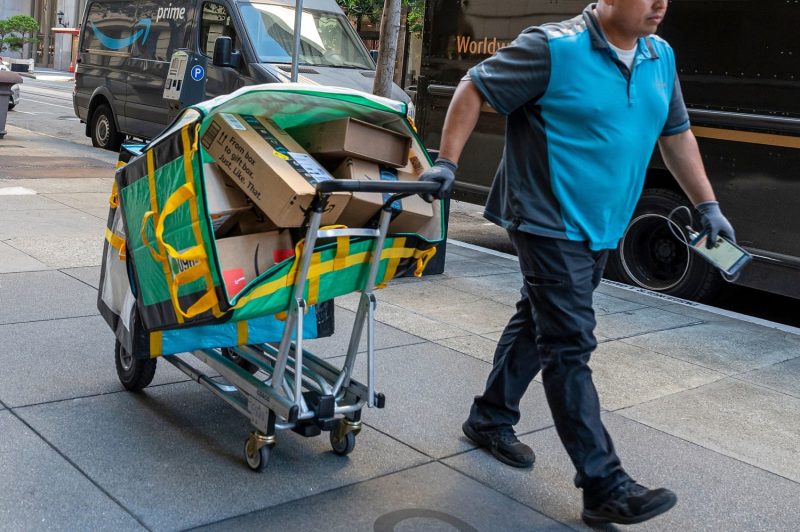
Amazon Faces Lawsuit from Washington D.C. Attorney General Over Prime Delivery Exclusion
In a recent legal development, the District of Columbia Attorney General has filed a lawsuit against retail giant Amazon, alleging that the company discriminates against neighborhoods predominantly occupied by people of color by excluding them from its Prime delivery service. This lawsuit sheds light on a crucial issue of inequity in access to essential services based on geographical location and demographic factors.
One of the primary arguments made by the D.C. Attorney General is that Amazon’s practice of offering different delivery options based on ZIP codes leads to discriminatory outcomes. This targeted approach of determining service availability has raised concerns about systemic biases and unequal treatment among communities. By allegedly denying residents of certain neighborhoods the benefits of expedited delivery services, Amazon is being accused of perpetuating disparities and reinforcing existing inequities.
The lawsuit highlights the importance of addressing structural inequalities in the digital economy, where tech companies wield significant influence over access to goods and services. As online commerce continues to dominate the retail landscape, ensuring fair and equitable access to delivery services is essential for promoting economic justice and social inclusion. The case against Amazon represents a pivotal moment in holding corporations accountable for their impact on marginalized communities.
Moreover, the legal action against Amazon underscores the broader implications of tech-driven discrimination and the need for regulatory oversight to prevent harm to vulnerable populations. As advancements in technology transform the way we shop and interact with businesses, it is imperative to safeguard against practices that marginalize certain groups based on their geographical location or socioeconomic status. The case serves as a reminder of the responsibility that tech companies have in promoting fairness and inclusivity in their service offerings.
In response to the lawsuit, Amazon has defended its delivery practices, arguing that they are based on logistical considerations rather than discriminatory intent. The company asserts that factors such as proximity to fulfillment centers and transportation infrastructure influence the availability of expedited delivery options in certain areas. While logistical challenges are inevitable in the delivery business, it is crucial for companies like Amazon to ensure that their operational decisions do not exacerbate social disparities or reinforce patterns of exclusion.
Ultimately, the outcome of the legal battle between the D.C. Attorney General and Amazon will have far-reaching implications for the future of e-commerce and the distribution of essential services. By addressing allegations of discriminatory practices in Prime delivery services, this case has the potential to set a precedent for promoting equity and fairness in the digital marketplace. As consumers, policymakers, and businesses navigate the complexities of the online retail landscape, it is crucial to prioritize ethical considerations and social responsibility to build a more inclusive and just economy for all.
